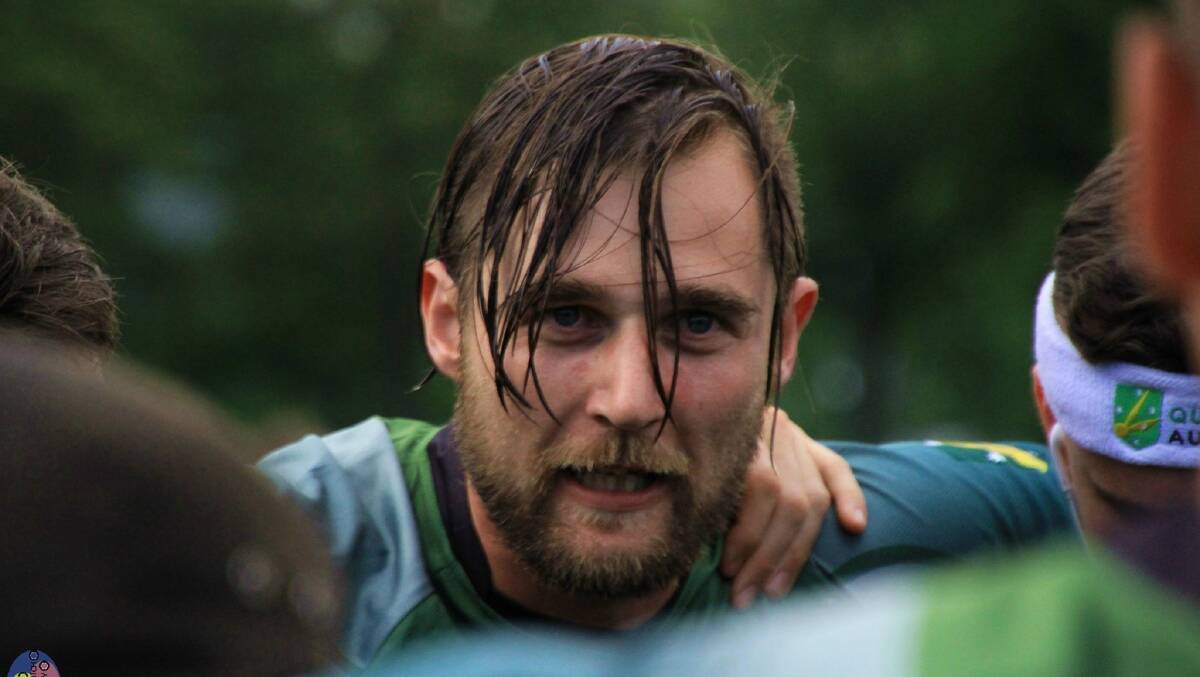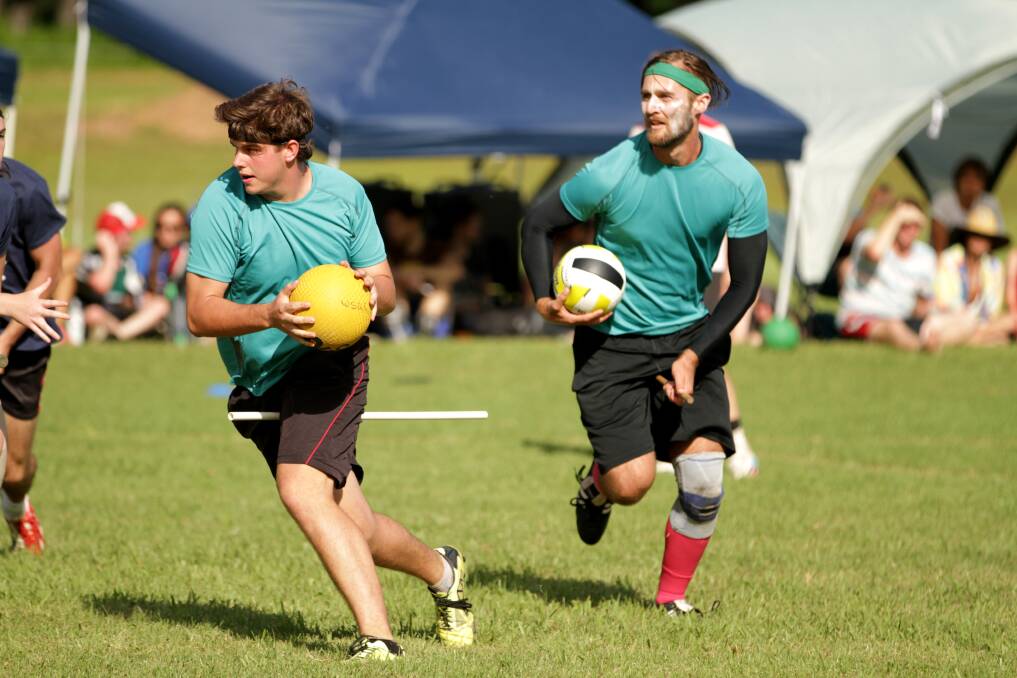A FIT team of muggles, captained by former Camden Haven lad James Mortensen, brought home the Quidditch World Cup in July.
Subscribe now for unlimited access.
or signup to continue reading
The Australian team, the Dropbears, snitched victory against the United States 150-130 and in the process, handed the US team their first ever loss.
Twenty-one teams from around the world competed for national pride at the tournament.
The world cup, played in Frankfurt Germany, saw the Dropbears notch up decisive victories against Germany (150-120), France (110-60) and Canada (90-40).
Their win in the final was even sweeter because the USA defeated Australia in the last world cup in 2014.
Quidditch, for those uninitiated to the sport, was played by some of the magical characters in JK Rowling’s Harry Potter books. Players flew on broomsticks, used three balls, bats for defence and tried to score points by getting balls through hoops. One ball, the Golden Snitch, flies around the arena and, if caught, finishes the game and earns that team 150 points.
Back in the real world, players run around with sticks between their legs, mimicking the broomsticks in the fictional game. They sprint, tackle, throw, score and chase that all important golden snitch. The scoring system is slightly different to make the game more strategic and exciting.
The real-life sport has been played for more than a decade.
James Mortensen’s father, Julien, is proud of his son’s achievements.
“I’m pleased that James has been able to do with his life what has pleased him rather than others. It’s fantastic for him and the team to be able to take time out of their lives to do something out of the ordinary,” Julien said.
James works and studies at the Australian National University in Canberra. He began playing Quidditch two years ago when living in Newcastle. Julien said James’ involvement was sparked by a woman.
“He said a girl he liked played the sport and he started playing to impress her. He’s not even a Harry Potter fan,” Julien said.
“He has always been athletic and studied martial arts.
“I’ve watched him play in Canberra and I liked it. It’s like watching Aussie Rules for the first time; you’re trying to work out what is happening, but it’s a very enjoyable game to watch.
“It’s challenging with a broom, it’s a handicap and brings athletic people and non-athletic people to the same level.
“It’s a sport where different people meet, particularly those who may not have been into sport before, and it’s been a successful social outlet.”
The coach, Gen Gibson, is a player from Victoria and a professional gymnastics coach for Gymnastics Victoria. Gen volunteered her time at her own expense to get the team to the world cup.
As captain, Julien said, James has been instrumental in bringing the team together and all players had to fund their own way to the world cup.
The players came together from Perth, Sydney, Canberra and Melbourne at least once a month from April to July to train, and spent a week in Frankfurt training every day in the lead up to the competition.
“The team is self-funded and gained some sponsorship for their shirts. They did some fundraising to get there,” Julien said.
Quidditch is one of the fastest growing sports in Australia. The number of non-Potter fans playing the sport is growing. Active people are drawn to the sport for its athletic quality.
James said quidditch is the only sport which men and women play, full contact.
“What has kept me involved is that every player can make a difference to the game,” he said.
“When I first started playing I thought it would be easy. I was athletic and the 25 minute duration of the game sounded easy. I’d played 90 minutes of rugby and 45 minutes of basketball in the past.
“But the game constantly flows. There is constant movement.
“It’s mentally taxing. It’s like sitting an exam and running at the same time. You have to keep track of seven players, three balls and score.
“Rugby players think they can play and smash nerds. They can try but while they’re doing that, the little girl you didn’t see as a contender can take you out of the game.
“It’s a game that has an unstable element that overcomes many obstacles brought into a sport by size and gender.
“You need people on your team who can make decisions under stress, not necessarily those who are the fastest and strongest.”
James is a well-respected player and is on the board of directors adapting a framework to this young sport.
The captain and coach of the Australian team were democratically elected by players.
“I was humbled by the election as captain. It was a great opportunity to build a team and I think I built a strong group of individual players.
“I got to build a team where we could put our differences together rather than cast them aside. It’s a world I liked living in where people’s individuality was used to the best effect, the girls, boys, fast, slow, tall, short.
“Australia’s performance was a surprise at the world cup. We don’t do a lot of filming of our play and because Australia is isolated and the rest of the world only thinks about teams around them, we were written off by some of the other teams.
“We could see how they played because they uploaded videos to YouTube, but it’s different watching on a computer screen to seeing how people play.
“It takes a lot of self-belief to say that we will trounce another team because of X, Y, Z but we did.
“We did as well as I expected at the World Cup. I didn’t think we would win. I thought we would come second to the US. They had more athletes than the other teams.
“The US could have scored more if they passed to their girls. They were in the right positions at the right time, but they didn’t get the chance.
“Our girls scored 40 points in the final. It seemed the girls were not viewed as good opponents by the US, I guess.
“When the snitch was released into the game, the call from the US bench was “double male”, meaning they wanted two males to be beaters (defenders).
“We trusted our players to do the job.”
James went to Kendall Central School and Camden Haven High School. He is currently studying philosophy and completing a PhD.
The next world cup will be played in 2018.
There are 300 quidditch teams world wide. Quidditch is played in Port Macquarie – check out their Facebook page for information if you’re interested in playing.
Alex Benepe, founder and commissioner of the International Quidditch Association said: “There's something very free about putting a cape on, and running around with a broom between your legs. It's this declaration like, I don't care if I look silly, I'm having a great time.”




